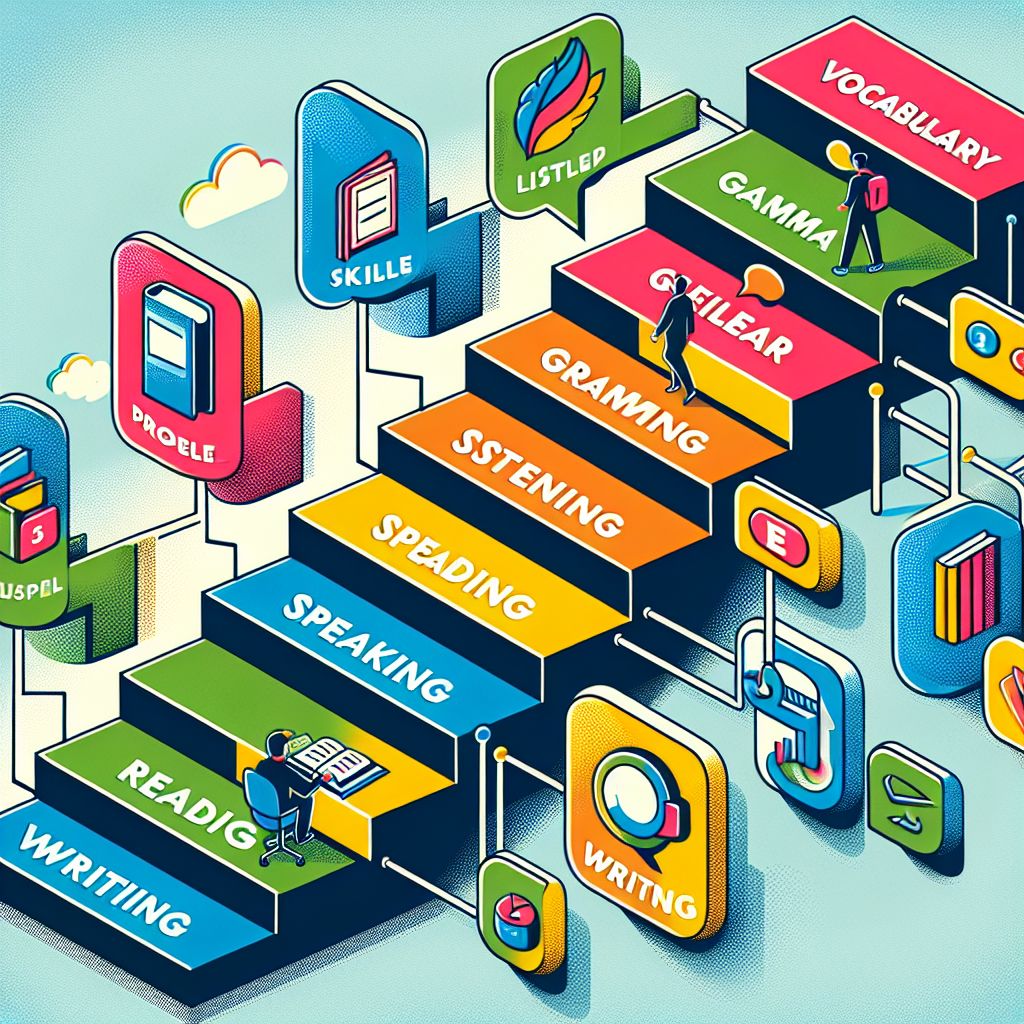Are you looking to embark on an English language journey or take your existing skills to the next level? Learning English Step By Step is an effective approach that can help you build a strong foundation and progress steadily. This comprehensive guide will provide you with valuable insights, practical tips, and proven strategies to master the English language, regardless of your current proficiency level.
 Step-by-step English learning process
Step-by-step English learning process
Why Learn English Step by Step?
Learning English step by step is crucial for several reasons:
- Structured approach: It provides a clear pathway for learners to follow, ensuring that they cover all essential aspects of the language.
- Builds confidence: By mastering one skill at a time, learners gain confidence in their abilities and are motivated to continue learning.
- Prevents overwhelm: Breaking down the learning process into manageable steps helps prevent feelings of being overwhelmed by the complexity of the language.
- Reinforces learning: Each step builds upon the previous one, reinforcing what has been learned and creating a solid foundation for future progress.
Step 1: Start with Basic Vocabulary
Building a strong vocabulary is the foundation of language learning. Begin with common words and phrases used in everyday situations.
Tips for Learning Vocabulary:
- Use flashcards or vocabulary apps like Quizlet or Anki
- Learn words in context through short stories or dialogues
- Practice using new words in sentences
- Group words by themes or categories (e.g., food, transportation, emotions)
Remember, consistency is key. Aim to learn 5-10 new words each day and review them regularly.
Step 2: Grasp Essential Grammar Concepts
While grammar can seem daunting, it’s crucial for constructing correct sentences and expressing yourself clearly.
Key Grammar Areas to Focus On:
- Verb tenses (present, past, future)
- Subject-verb agreement
- Articles (a, an, the)
- Prepositions
- Basic sentence structures
Use grammar workbooks, online exercises, and apps like Grammarly to practice and reinforce your understanding of grammar rules.
Step 3: Develop Listening Skills
Listening is essential for understanding spoken English and improving pronunciation.
Effective Listening Practice Techniques:
- Watch English movies and TV shows with subtitles
- Listen to English podcasts or audiobooks
- Use language learning apps with listening exercises (e.g., Duolingo, BBC Learning English)
- Attend English conversation groups or language exchange meetups
Start with slow, clear audio materials and gradually progress to more natural, fast-paced content as your skills improve.
 Diverse English learning resources
Diverse English learning resources
Step 4: Improve Speaking Skills
Speaking practice is crucial for gaining fluency and confidence in using English.
Tips for Enhancing Speaking Skills:
- Practice speaking aloud, even when alone
- Record yourself speaking and listen for areas of improvement
- Use language exchange apps like Tandem or HelloTalk to practice with native speakers
- Participate in English conversation groups or clubs
- Try shadowing techniques (repeating after native speakers in real-time)
Don’t be afraid to make mistakes – they’re a natural part of the learning process and will help you improve over time.
Step 5: Enhance Reading Comprehension
Reading helps expand vocabulary, improve grammar, and expose you to different writing styles and contexts.
Strategies for Improving Reading Skills:
- Start with graded readers appropriate for your level
- Read diverse materials: news articles, blogs, short stories, and novels
- Use context clues to guess the meaning of unfamiliar words
- Practice active reading by summarizing or discussing what you’ve read
- Join an English book club or online reading group
Gradually increase the difficulty of your reading materials as your skills improve.
Step 6: Master Writing Skills
Writing helps consolidate your knowledge of vocabulary and grammar while developing your ability to express ideas clearly.
Writing Practice Ideas:
- Keep a daily journal in English
- Write short essays on topics that interest you
- Practice writing emails or letters for different purposes
- Use writing prompts to spark creativity
- Get feedback on your writing from native speakers or language exchange partners
Remember to focus on clarity and coherence in your writing, and don’t hesitate to use tools like Grammarly for additional support.
Step 7: Immerse Yourself in the Language
Immersion is key to achieving fluency and natural language use.
Immersion Techniques:
- Change your device language settings to English
- Follow English-language social media accounts and engage with their content
- Participate in English-language online forums or communities related to your interests
- Travel to English-speaking countries or attend language immersion programs if possible
The more you surround yourself with English, the more natural it will become to think and express yourself in the language.
Important Considerations
- Consistency is key: Set aside regular time for English practice, even if it’s just 15-30 minutes a day.
- Be patient: Language learning takes time. Celebrate small victories and don’t get discouraged by setbacks.
- Use a variety of resources: Combine textbooks, apps, online courses, and real-life practice for a well-rounded learning experience.
- Set realistic goals: Break down your learning into achievable milestones to maintain motivation.
- Embrace mistakes: They’re a natural part of the learning process and provide valuable learning opportunities.
Next Steps
Now that you have a comprehensive step-by-step guide to learning English, it’s time to put it into action. Start by assessing your current level and identifying which areas need the most improvement. Create a study plan that incorporates all the steps mentioned above, and be sure to track your progress regularly.
Remember, learning a language is a journey, not a destination. Enjoy the process, celebrate your achievements, and don’t be afraid to seek help when needed. With dedication and consistent practice, you’ll be well on your way to mastering the English language.
Are you ready to take your English skills to the next level? Share your experiences, challenges, or questions in the comments below, and let’s support each other on this language learning adventure!




